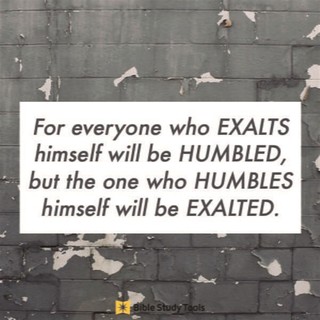
- Recent Translations
- All Translations
Lukas 18
Share
Settings
Lukas 18 Commentary
Chapter 18
The parable of the importunate widow. (1-8) The Pharisee and the publican. (9-14) Children brought to Christ. (15-17) The ruler hindered by his riches. (18-30) Christ foreshows his death. (31-34) A blind man restored to sight. (35-43)
Verses 1-8 All God's people are praying people. Here earnest steadiness in prayer for spiritual mercies is taught. The widow's earnestness prevailed even with the unjust judge: she might fear lest it should set him more against her; but our earnest prayer is pleasing to our God. Even to the end there will still be ground for the same complaint of weakness of faith.
Verses 9-14 This parable was to convince some who trusted in themselves that they were righteous, and despised others. God sees with what disposition and design we come to him in holy ordinances. What the Pharisee said, shows that he trusted to himself that he was righteous. We may suppose he was free from gross and scandalous sins. All this was very well and commendable. Miserable is the condition of those who come short of the righteousness of this Pharisee, yet he was not accepted; and why not? He went up to the temple to pray, but was full of himself and his own goodness; the favour and grace of God he did not think worth asking. Let us beware of presenting proud devotions to the Lord, and of despising others. The publican's address to God was full of humility, and of repentance for sin, and desire toward God. His prayer was short, but to the purpose; God be merciful to me a sinner. Blessed be God, that we have this short prayer upon record, as an answered prayer; and that we are sure that he who prayed it, went to his house justified; for so shall we be, if we pray it, as he did, through Jesus Christ. He owned himself a sinner by nature, by practice, guilty before God. He had no dependence but upon the mercy of God; upon that alone he relied. And God's glory is to resist the proud, and give grace to the humble. Justification is of God in Christ; therefore the self-condemned, and not the self-righteous, are justified before God.
Verses 15-17 None are too little, too young, to be brought to Christ, who knows how to show kindness to those not capable of doing service to him. It is the mind of Christ, that little children should be brought to him. The promise is to us, and to our seed; therefore He will bid them welcome to him with us. And we must receive his kingdom as children, not by purchase, and must call it our Father's gift.
Verses 18-30 Many have a great deal in them very commendable, yet perish for lack of some one thing; so this ruler could not bear Christ's terms, which would part between him and his estate. Many who are loth to leave Christ, yet do leave him. After a long struggle between their convictions and their corruptions, their corruptions carry the day. They are very sorry that they cannot serve both; but if one must be quitted, it shall be their God, not their wordly gain. Their boasted obedience will be found mere outside show; the love of the world in some form or other lies at the root. Men are apt to speak too much of what they have left and lost, of what they have done and suffered for Christ, as Peter did. But we should rather be ashamed that there has been any regret or difficulty in doing it.
Verses 31-34 The Spirit of Christ, in the Old Testament prophets, testified beforehand his sufferings, and the glory that should ( 1 Peter. 1:11 ) that they would not understand these things literally. They were so intent upon the prophecies which spake of Christ's glory, that they overlooked those which spake of his sufferings. People run into mistakes, because they read their Bibles by halves, and are only for the smooth things. We are as backward to learn the proper lessons from the sufferings, crucifixion, and resurrection of Christ, as the disciples were to what he told them as to those events; and for the same reason; self-love, and a desire of worldly objects, close our understandings.
Verses 35-43 This poor blind man sat by the wayside, begging. He was not only blind, but poor, the fitter emblem of the world of mankind which Christ came to heal and save. The prayer of faith, guided by Christ's encouraging promises, and grounded on them, shall not be in vain. The grace of Christ ought to be thankfully acknowledged, to the glory of God. It is for the glory of God if we follow Jesus, as those will do whose eyes are opened. We must praise God for his mercies to others, as well as for mercies to ourselves. Would we rightly understand these things, we must come to Christ, like the blind man, earnestly beseeching him to open our eyes, and to show us clearly the excellence of his precepts, and the value of his salvation.
